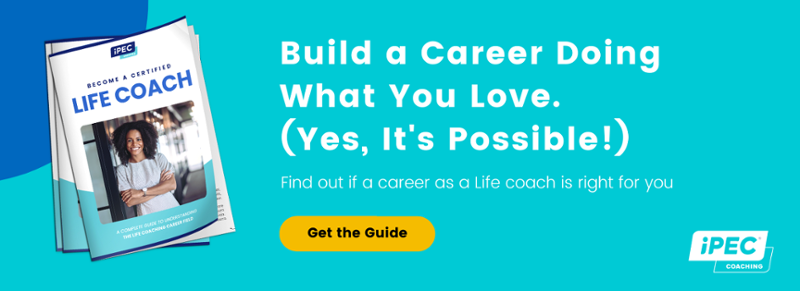Why Self Awareness is Important, Plus 3 Specific Ways to Become More Self-Aware
by Trish Cody, ACC, CPC, ELI-MP
Feb 02, 2022 | 2 minutes read
Developing self-awareness is a worthwhile commitment for anyone whose life involves communicating, collaborating, or connecting with others (so, everyone! 😉).
Whether you’re looking to bring more self-awareness in your role as a leader, a parent, or a friend, those relationships will be better for it!
As Tasha Eurich states in her book Insight, self-awareness in leadership is “the single most important, and yet least examined, determinant of success or failure.” She goes on to cite a PDI Ninth House study, “Accurate Self-Insight Decreases Derailment Risk,” which concluded that senior leaders who lack self-awareness are 600% percent more likely to derail, which costs companies a staggering $50 million per executive.
The question is: what is the best way to get started in developing this crucial skill?
How to Begin Developing Self-Awareness
While self-awareness is a relatively self-explanatory concept, getting to a place where you are regularly practicing effective self-awareness is not always simple. Many people are so caught up in their hectic lives that they’ve forgotten how to put themselves in a place where self-awareness is even possible. So I wanted to rewind a bit in this post and talk about the basic building blocks of self-awareness: noticing and mindfulness.
Mindfulness has gotten a lot of press recently and I’m sure you’ve seen countless articles on using mindfulness to fight anxiety, be more present in your daily life, and find inner peace.
Unfortunately, many people don’t even know what mindfulness is. Really, what it all comes down to is noticing. Once you start noticing, your awareness increases and you can put mindfulness practices into place that will help you notice even more.
So what should you be noticing, anyway? I usually find it helpful to increase noticing in three key areas:
Noticing the now
Think about what was on your mind before you started reading this post. More than likely, you were either going over something that has happened in the recent or distant past, or you were concentrating on (or worrying about) an upcoming meeting or event you needed to prepare for. It’s human nature to focus on the past or future, but noticing the now is vital for mindfulness.
A simple way to bring yourself back to the present is to concentrate on your breathing. Or, take note of your environment and engage your senses: what do you see, smell, and hear?
When you notice the now, you can better appreciate the moment and release any fear or anxiety that comes from worrying about the past or future.
Noticing your thoughts and emotions
We are constantly experiencing thoughts and emotions, but many of us have found ways to tune them out. A huge part of mindfulness is finding ways to notice those again. Is there a pit in your stomach? Why? Is it fear, worry, shame, etc? Where did it come from and what are you telling yourself it means about you? Start naming the different emotions you’re experiencing, such as joy, sadness, confusion, anger, nervousness, anything! Then, notice how those emotions affect your thoughts and the meaning you are assigning them.
Noticing how you affect others
No matter your role in life, what you do and say greatly affects the people around you. Do you notice how your friends, family, and/or colleagues react when you’re angry? When you blame others? When you retreat and isolate yourself? How about when you’re in a great mood and full of energy or ideas? Really start paying attention to how your different words and actions affect the people in your life. You’ll probably be surprised at how just a few words or one look can instantly change the atmosphere.
Developing your self-awareness is a powerful way to enhance your relationships as a leader, a parent, a friend, or any other role you occupy in your day-to-day life.
Integrating these strategies will take time and practice, but I encourage you to keep at it! The more you can stick with it and approach these tactics from a place of curiosity (rather than judgment) the stronger your self-awareness muscles will become—and the better off your relationships will be.
Curious About Becoming a Professional Coach?
Check out our in-depth guide to the field of coaching, and find out whether it might be the right career path for you!


